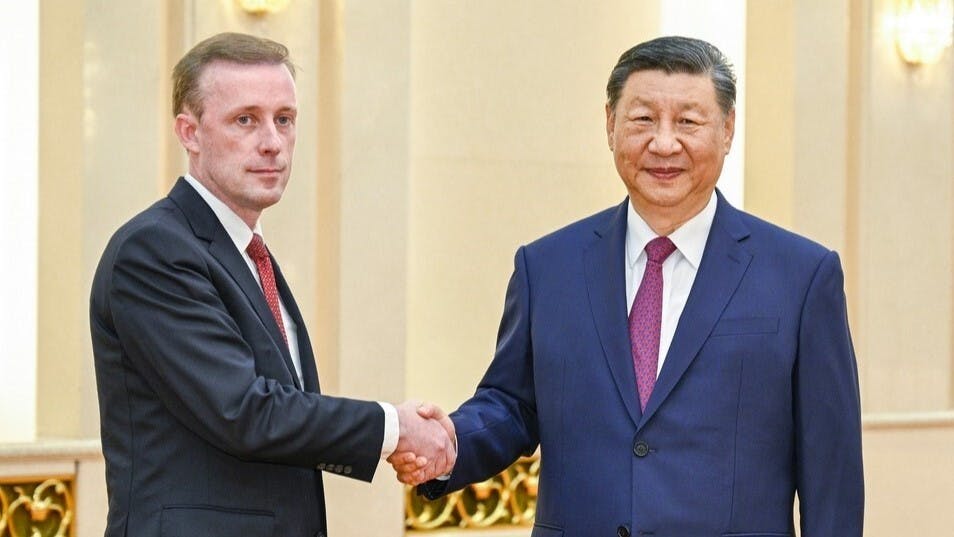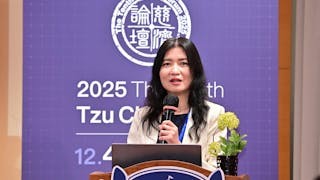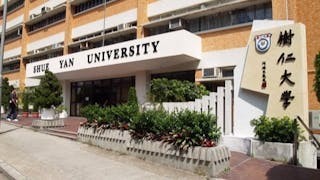美國國家安全顧問傑克·沙利文(Jake Sullivan)8月27日至29日對中國進行了為期3天的訪問,為總統拜登和中國國家主席習近平即將舉行的會談鋪路,但沙利文與中國領導人的對話並沒有帶來任何真正成果。
這次訪問是應中國外交部長王毅邀請進行的,王毅此前曾與沙利文進行過3次會面,此次與沙利文進行了6輪會談,歷時11個小時。
高層政治 難有突破
8月27日和28日會晤後,白宮8月28日表示,雙方就遏止毒品、適時舉行中美兩軍領導人視像通話、人工智能安全和風險等一系列問題進行了坦誠和建設性的討論。沙利文和王毅討論了合成類鴉片藥物芬太尼輸美、遣返非法移民,以及美國總統國際氣候政策高級顧問波德斯塔(John Podesta) 稍後訪華的準備工作。據報道,沙利文向王毅提出了一些問題,包括阻止美國先進技術被用來破壞國家安全、中國「不公平的貿易政策和非市場經濟的做法」,以及美國公民「被錯誤拘留或被驅逐出境」的情況。
沙利文又重申了美國在台灣問題上對台海和平穩定的支持。他還強調了對「中國支持俄羅斯國防工業基礎及其對歐洲和跨大西洋安全的影響深感關切」。沙利文也對中國「針對菲律賓在南中國海的合法海上作業所做的破壞穩定的行為」表示關切。另外,雙方也討論了北韓、緬甸、中東等議題。
分析來看,遏止毒品、遣返非法移民、進一步討論氣候變遷政策等屬於政治敏感度較低的範疇,對話比較容易,進展也較明顯。
然而,對話的其他領域,如技術轉移、貿易行為、台灣、南海、北韓、緬甸和中東等問題,則陷入了似乎沒有任何真正突破的「高層政治」範圍。政治姿態注定成為所有這些有爭議問題的標記。
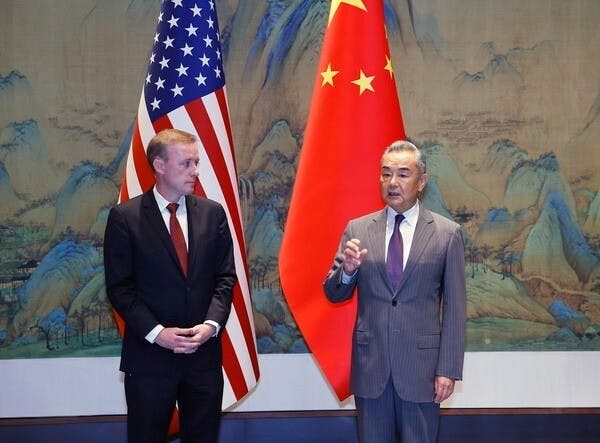
北京熱衷維持 中美關係現狀
就在沙利文訪華前兩天,中國商務部表示,中方堅決反對美方對42家中國實體實施出口管制,其中包括3家使用香港地址的公司。
以王毅為首的中方敦促美方「停止將經濟和貿易問題政治化和安全化」。此外,在烏克蘭問題上,中方堅持勸和促談,推動政治解決烏克蘭危機。中國也要求美方「 停止濫施單邊制裁和長臂管轄,停止對中方抹黑栽贓、施壓訛詐」。中國表示,中國在南海行使主權、領土完整和海洋權利有其歷史和法理依據。在中東問題上,中國也支持公平正義,包括恢復巴勒斯坦立國的權利。最後,中方告誡美方不要再走「西方殖民主義的老路」、「霸權主義」和「意識形態輸出」。
事實上,意識形態差異仍然是美中關係最重要的絆腳石。8月27日至29日的訪問是沙利文以國家安全顧問身份首次訪華。他會見了中國國家主席習近平和中央軍委副主席張又俠。張又俠告訴沙利文,台灣是中美關係「不可逾越的第一條紅線」。中方告訴美方,美方應停止向台灣提供武器,但美國必然無視這項要求,因為華盛頓利用軍事威懾,作為幫助台灣應對大陸「軍事威脅」的手段。
有意思的是,國家主席習近平會見沙利文時,強調了中方對美政策保持高度連貫性──這一姿態表明,在拜登即將卸任美國總統之際,北京方面仍熱衷維持中美關係現狀。
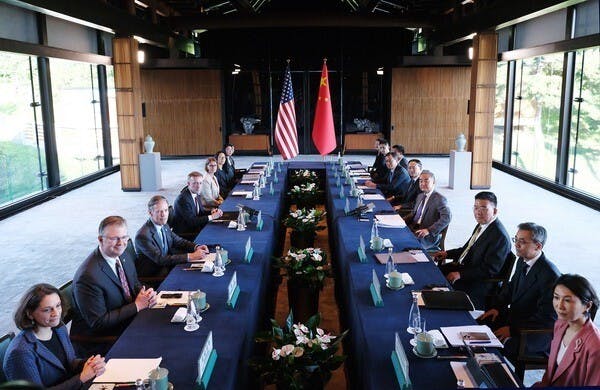
沙利文訪華具有多方面的政治意義。
白宮主人是誰 都不影響中國看法
首先,這次訪問在11月美國總統大選前為拜登與習近平的對話做準備──當然,美中關係的連貫性,以及沙利文此行從中國領導人那裏得到的信息,也會成為主題。
其次,沙利文的言辭似乎比以前更似外交官,特別是比較他獲任命為國家安全顧問後不久。顯然,沙利文在如何以外交方式與中國打交道的問題上,有自己的學習曲線。另一方面,資深外交官王毅在高層政治的各種議題上,顯示出強調中國立場的高度連貫性。
第三,習近平主席強調中美關係健康、可持續發展、相互尊重、和平共處、互利共贏的高度連貫性,奠定了處理中美關係的原則。這意味着,無論誰成為下一任美國總統──民主黨的賀錦麗,抑或共和黨的特朗普,中國對美政策都將一以貫之,不會改變。
第四,沙利文訪華正值菲律賓與中國因南海部分島礁領土爭端,導致關係惡化之際。美國在菲律賓呂宋島北部部署中程導彈系統也敲響了中國的安全警鐘。華盛頓和馬尼拉之間更緊密的軍事聯盟,加劇了中國對美國意圖的看法。因此,沙利文的訪華集中了中國的敏感度和認知,這意味着美國或許應該思考如何遏制菲律賓在南海的海上動作,或者考慮如何緩和兩國的聯合行動以緩和緊張局勢。中菲南海問題如果處理不當,可能成為潛在的爆發點,使中美菲三角關係複雜化。事實上,中國外交部北美大洋洲司司長楊濤8月30日公開表示,菲律賓應恪守南海行為準則,美國應採取有利於區域和平穩定的方式行事。沙利文訪問期間,中國向美國和菲律賓傳達的訊息非常明確。
總之,沙利文訪華顯示美中雙方都渴望強調美中關係發展的連貫性。雖然遏止毒品、氣候變遷、非法移民遣返等問題的對話,對雙方來說相對容易解決,但其他問題往往有明顯的僵局,而不是真正的突破。鑑於當前競爭和爭議關係的背景,我們不能指望美中關係會發生實質變化,特別是當美國將中國視為經濟競爭對手和軍事威脅時。技術轉移仍然是一個極其棘手的問題,導致美國對中國實體和公司頻繁且不可避免的制裁。
同樣,美國對中國所謂「不公平貿易行為」的看法,意味着雙邊貿易關係仍然困難重重。其他高層政治議題,如台灣、烏克蘭、中東和朝鮮,也仍然是棘手的意識形態問題。中菲關於南海部分島礁的爭端仍然是一個潛在的熱點,預計美國將採取更多行動,以避免不必要的海上事故和軍事衝突。整體而言,沙利文的訪問,突顯了從目前到11月美國總統大選的這段日子中,美中關係延續的主題。
拜登政府在處理美中關係方面,明顯被描繪成積極主動的政府,而不是消極的「跛腳鴨」。另一方面,中國也熱衷於強調中美關係的連貫性。這種國家利益的契合是美中關係發展的正面跡象。總之,關係延續而沒有突破成為沙利文訪華的特徵。
Dialogue without breakthrough: Jake Sullivan’s visit to China
The 3-day visit of the US National Security Adviser, Jake Sullivan, to China from August 27 to 29 laid the foundation of the forthcoming talks between President Joe Biden and President Xi Jinping, but Sullivan’s dialogue with Chinese leaders did not really bring about any breakthrough.
The visit was made on the invitation of the Chinese Foreign Minister Wang Yi, who had met Sullivan three times before and who had six rounds of talks with Sullivan this time lasting for eleven hours.
After their meetings on August 27 and 28, the Readout of the White House on August 28 said that both sides had candid and constructive discussions on a full range of issues, including counternarcotics, military-to-military communications, and AI safety and risk. Sullivan and Wang discussed the next steps to reduce the flow of illicit synthetic drugs, the repatriation of undocumented migrants, and the preparation of the visit of International Climate Policy President John Podesta to China later. According to the Readout, Sullivan raised several issues to Wang Yi, including the prevention of advanced US technology transfer, China’s “unfair trade policies and non-market economic practices,” and the cases of US citizens “who are wrongfully detained or subject to exit bans in China.”
On Taiwan, Sullivan affirmed the US support of peace and stability across the Taiwan Strait. He also emphasized the Chinese “support for Russia’s defence industrial base and its impact on European and transatlantic security.” Sullivan also expressed concern about “China’s actions against lawful Philippine maritime operations in the South China Sea.” Both the US and Chinese sides also discussed the issues of North Korea, Myanmar, and the Middle East.
Analytically speaking, counternarcotics, the repatriation of undocumented migrants and the further discussion of climate change policy belong to the scope of politics with relatively lower degree of sensitivity, thereby having easier dialogue and more prominent progress.
However, other areas of the dialogue, such as technology transfer, trade practices, Taiwan, South China Sea, North Korea, Myanmar, North Korea, and the Middle East, fell into the scope of “high-level politics” that did not appear to have any real breakthrough. Political posturing was destined to be the hallmark of all these contentious issues.
Just two days before Sullivan’s visit to China, the Chinese Commerce Ministry stated that China resolutely opposed the US action of imposing export controls over 42 Chinese entities, including three companies that used addresses in Hong Kong.
The Chinese side led by Wang Yi reiterated China’s position on the need for the US to “stop politicizing and securitizing trade issues.” Moreover, on the issue of Ukraine, the Chinese side insisted on the necessity of dialogue and the use of diplomacy to promote peace. The Chinese side also told Sullivan to “stop imposing sanctions unilaterally and arbitrarily and to terminate the act of blackening the image of China.” According to the Chinese side, China’s exercise of its sovereignty, territorial integrity and maritime rights in South China Sea has its historical and legal rationale. China also supports justice in the Middle East, including the recovery of the nationality rights of Palestine. Finally, the Chinese side told the US side to stop going for “the old path of Western colonialism,” “hegemonism” and “ideological export.”
Indeed, ideological differences remain the most significant stumbling-block for US-China relations. The August 27-29 trip was Sullivan’s first visit to China in his capacity as the national security adviser. He met the Chinese President Xi Jinping and the Central Military Commission’s vice-chairman Zhang Youxia. Zhang told Sullivan that Taiwan is China’s “uncrossable first red line.” The Chinese side told the US side that the latter should terminate the provision of weapons to Taiwan – a demand that the US must ignore as Washington utilizes military deterrence as a means of helping Taiwan to cope with mainland China’s military threat.
Most interestingly, when President Xi Jinping met Sullivan, the former emphasized the continuities of China’s policy toward the US – a gesture that Beijing is keen to maintain the status quo in Sino-US relations at a time when President Joe Biden is an outgoing US leader soon.
The Sullivan visit to China is politically significant in several aspects.
First, the visit prepared for President Biden’s dialogue with President Xi prior to the US presidential election in November. Naturally, continuities in US-China relations have become the main theme of Sullivan’s visit, so as the Chinese message that he received from the Chinese leaders.
Second, Sullivan’s remarks appeared to be more diplomatic than before, especially the period shortly after he was appointed as the national security adviser. Clearly, Sullivan had his own learning curve toward the question of how to deal with China diplomatically. On the other hand, veteran diplomat Wang Yi has been displaying his high degree of continuities in emphasizing China’s position on various issues of high-level politics.
Third, President Xi’s emphasis on the high degree of continuities in Sino-US relations – healthy and sustainable development, mutual respect, peaceful coexistence, and win-win situation – laid the foundation of trust-building in Sino-US diplomacy. The implication is that whoever will become the next US President – Kamala Harris of the Democratic Party or Donald Trump of the Republican Party, China’s policy toward the US will exhibit continuities rather than changes.
Fourth, Sullivan’s visit to China came at a time when the relations between the Philippines and China deteriorated over their territorial dispute over some of the reefs in South China Sea. The US deployment of the Mid-Range Capability missile system to Northern Luzon in the Philippines also raised the security alarm of China. Compounding this Chinese perception of the US intention is the closer military alliance between Washington and Manila. As such, Sullivan’s visit gathered the Chinese sensitivity and perception, meaning that the US should perhaps ponder how to rein in the Philippine’s maritime moves in South China Sea, or consider how to moderate their joint moves to deescalate tensions. The Sino-Philippines relations over South China Sea, if mishandled, could become a potential flashpoint that would complicate the triangular relations between China, the US, and the Philippines. In fact, the Chinese Foreign Ministry official Yang Tao, said openly on August 30 that the Philippines should stick to the code of conduct in South China Sea and that the US should act in a way for the benefit of peace and stability in the region. The Chinese messages given to the US and the Philippines were noticeably clear during Sullivan’s visit.
In conclusion, Sullivan’s visit to China demonstrated that both the US and Chinese sides are eager to stress the continuities in the development of US-China relations. While dialogue over issues like counternarcotics, climate change and the repatriation of undocumented migrants were relatively easier for both sides to tackle, other issues tended to have obvious deadlock rather than real breakthrough. Given the background of the ongoing competitive and contentious relations, we cannot expect substantial changes in US-China relations, especially when the US sees China as an economic rival and a military threat. Technology transfer remains to be an extraordinarily thorny issue, leading to frequent and inevitable US sanctions over Chinese entities and companies.
Similarly, the US perception of so-called “unfair trade practices” in China means that bilateral trade relations remain difficult. Other high-level political issues, such as Taiwan, Ukraine, the Middle East, and North Korea, also remain difficult and ideological. The Sino-Philippines dispute over some of the reefs in South China Sea remains a potential flashpoint that the US is expected to do more for the sake of avoiding unnecessary maritime accident and military conflicts. Overall, the Sullivan visit has projected the theme of continuities in US-China relations in the current transition to the US presidential election in November.
The Biden administration is clearly portrayed as an active and positive one in dealing with US-China relations, not a “lame duck” characterized by passivity and negativity. On the other hand, China is also keen to emphasize continuities in Sino-US relations. Such convergence of national interests was a positive sign in the development of US-China relations. In short, continuities rather than breakthrough became the hallmark of Sullivan’s visit to China.
原刊於澳門新聞通訊社(MNA)網站,本社獲作者授權轉載。(原文按此)



